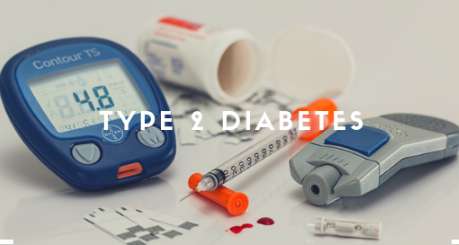Type 2 diabetes can be a deadly disease if you do not recognize it and manage it properly. However, even though it is such a serious disease, it does not mean that you cannot do anything to minimize the risk factors, improve your health, and increase your longevity. Some practical tips on managing diabetes effectively:
Make Changes in Your Diet
The first step in diabetes control is a change in what you eat. Plan your meals;eat less but more frequently tomaintain a balanced blood sugar level. Have a more balanced mix of proteins, fats, carbs, and fiber. Avoid refined carbohydrates and focus on whole grains that can take a longer time to be digested. Avoid red meats and fatty meats like bacon and enjoy small portions of fish and poultry to keep your fat intake low. Go very slow on sugary drinks like sodas and packaged fruit juices and even try to have your tea or coffee without sugar. One of the most common outcomes of diabetes is high blood pressure so eliminate as much salt as you can from your diet.
Monitor Your Blood Sugar, Blood Pressure, and Cholesterol
Typically, people suffering from type-2 diabetes have elevated blood sugar, blood pressure, and cholesterol, which, therefore, need to be monitored regularly. It is possible to measure both blood sugar and blood pressure very easily at home, though for measuring blood cholesterol, you will need to go to a testing lab. Ask your doctor regarding the intervals at which, you need to get these checked. Be sure that you know the proper method of using the home appliances. Make it a habit to keep a record of your readings so that your doctor can understand how well you have been managing your diabetes.
Diagnostic labs and researchers all over the world trust https://www.mybiosource.com/, a leading supplier of laboratory reagents and chemicals. Currently, there is a lot of ongoing research on genetic markers of diseases like diabetes, which were earlier thought to be only linked to lifestyles.
Work Out More
It is recommended by The Centers for Disease Control and Prevention (CDC) that you get a minimum of two-and-a-half hours of mid-intensity aerobic exercise week; these include cycling, swimming, gardening, and walking briskly. Also, undertake strength training to keep the muscles of your arms, chest, shoulders, legs, back, and the abs in tone. You can indulge in more vigorous exercises like running, uphill hikes, hilly terrain cycling, etc. that can halve the time you need for the same impact.
Conclusion
Stress can lead to high blood pressure, which can be a problem if you have diabetes since it affects your heart more so you need to be more relaxed and avoid stress both at work and at home. You should also stop smoking immediately as it damages the heart and blood vessels and increases your risk to a number of diseases. Remember to visit your doctor regularly and share with him all your medical history to enable him to make informed decisions about how to keep you in the best health.








